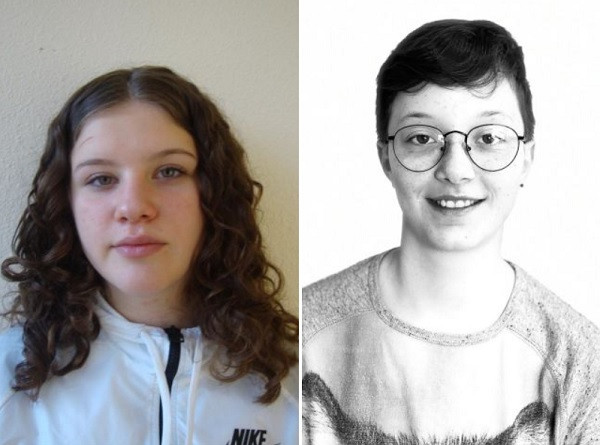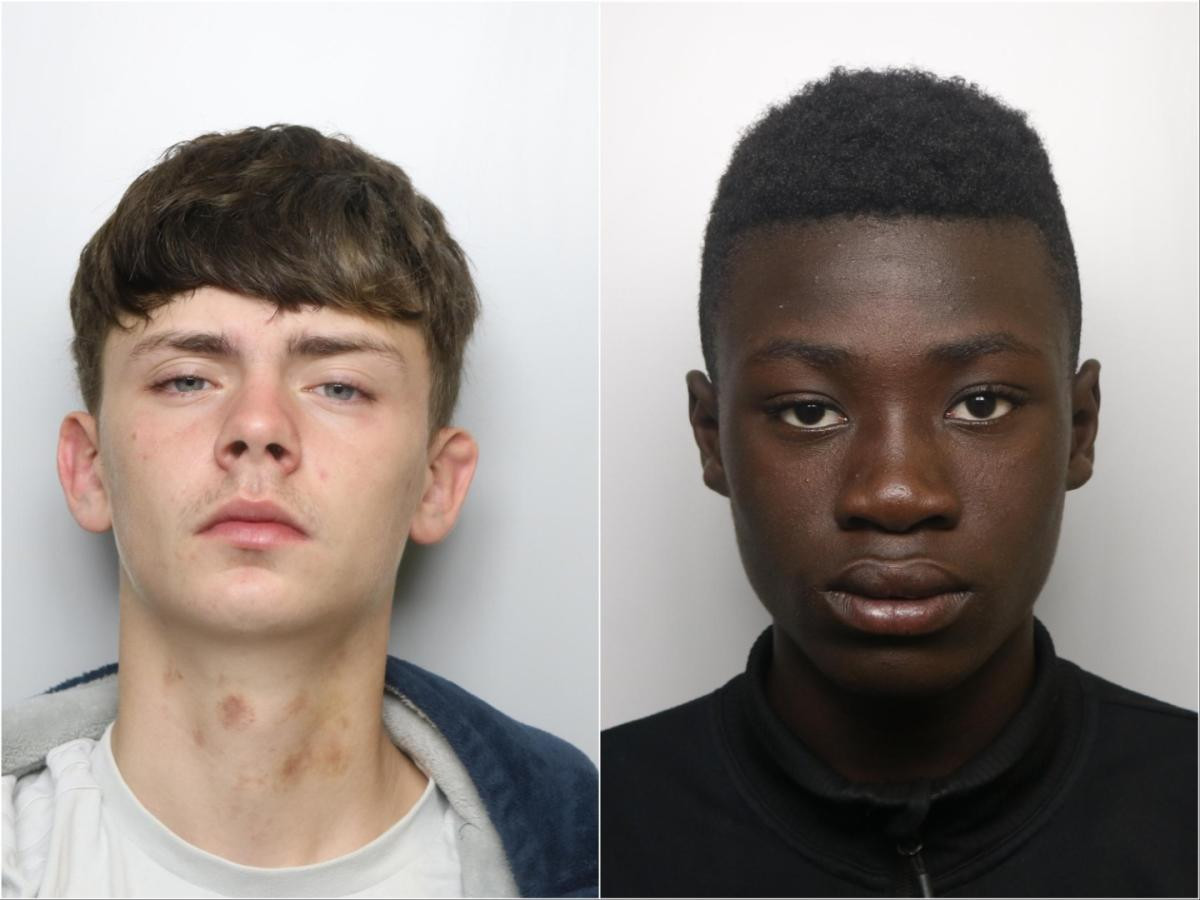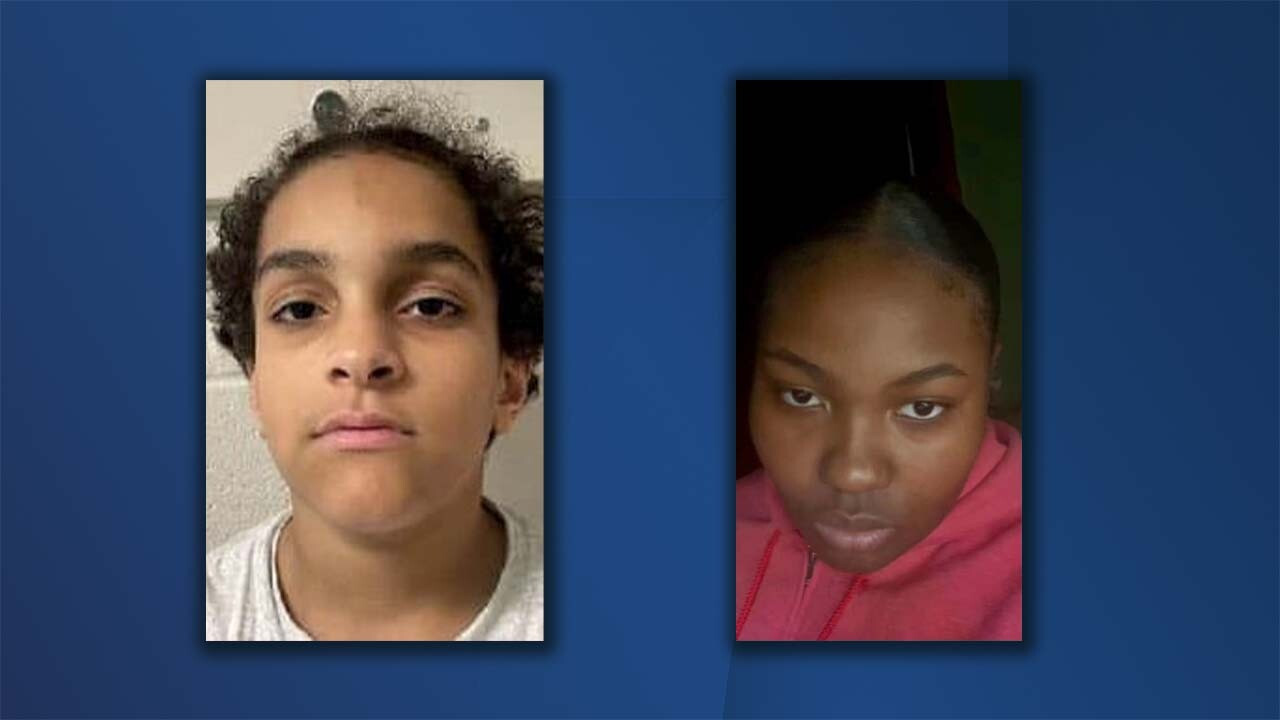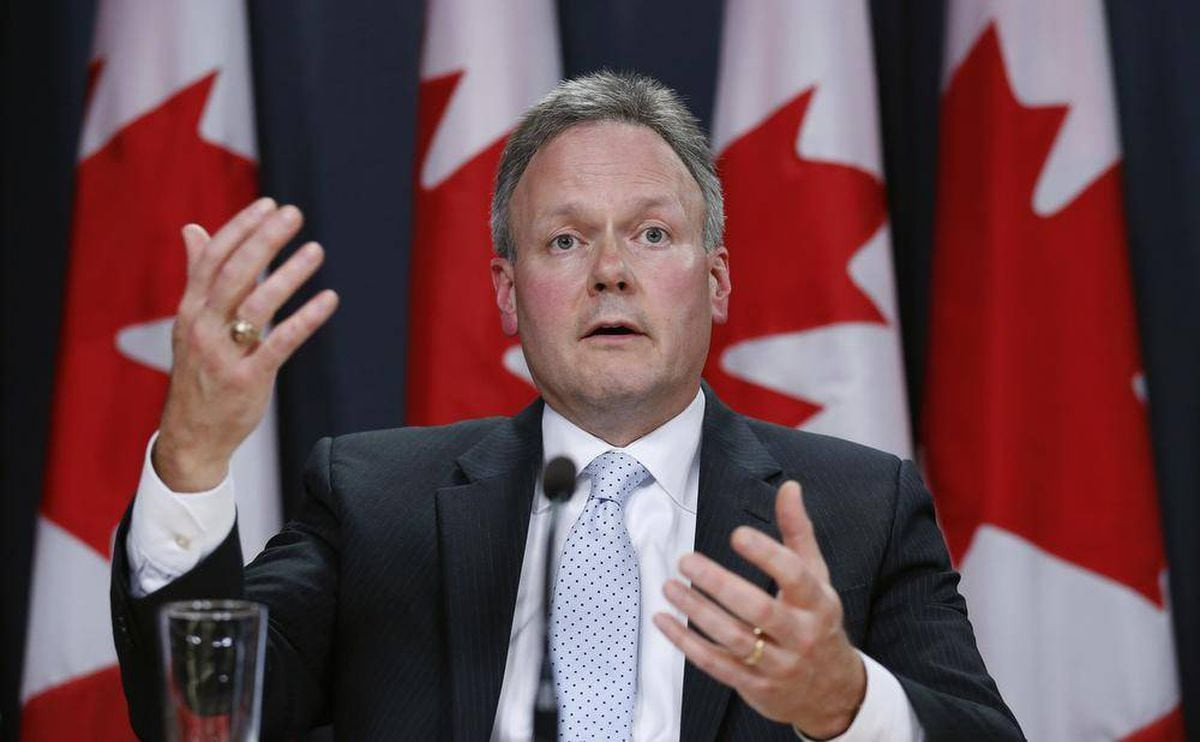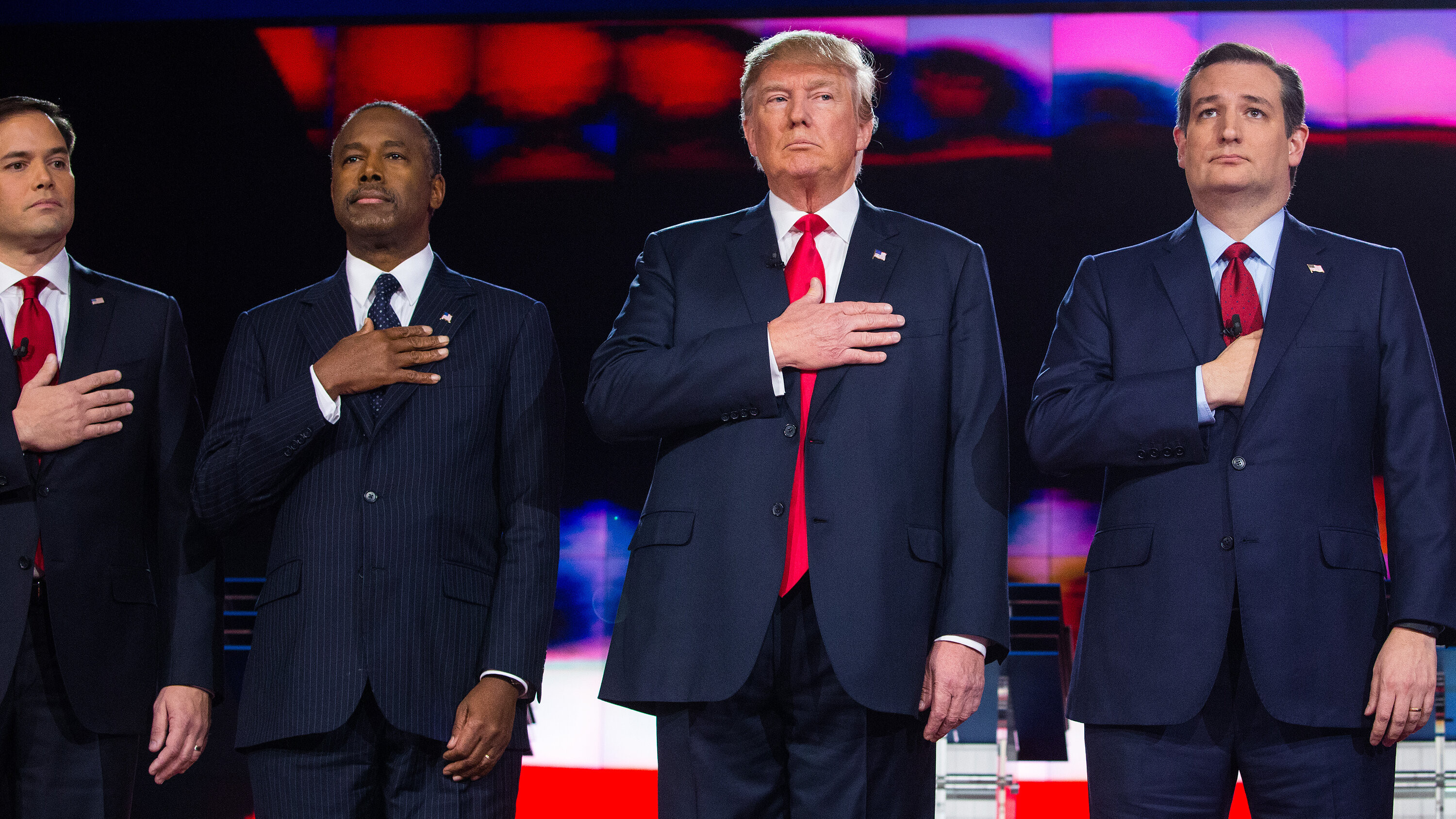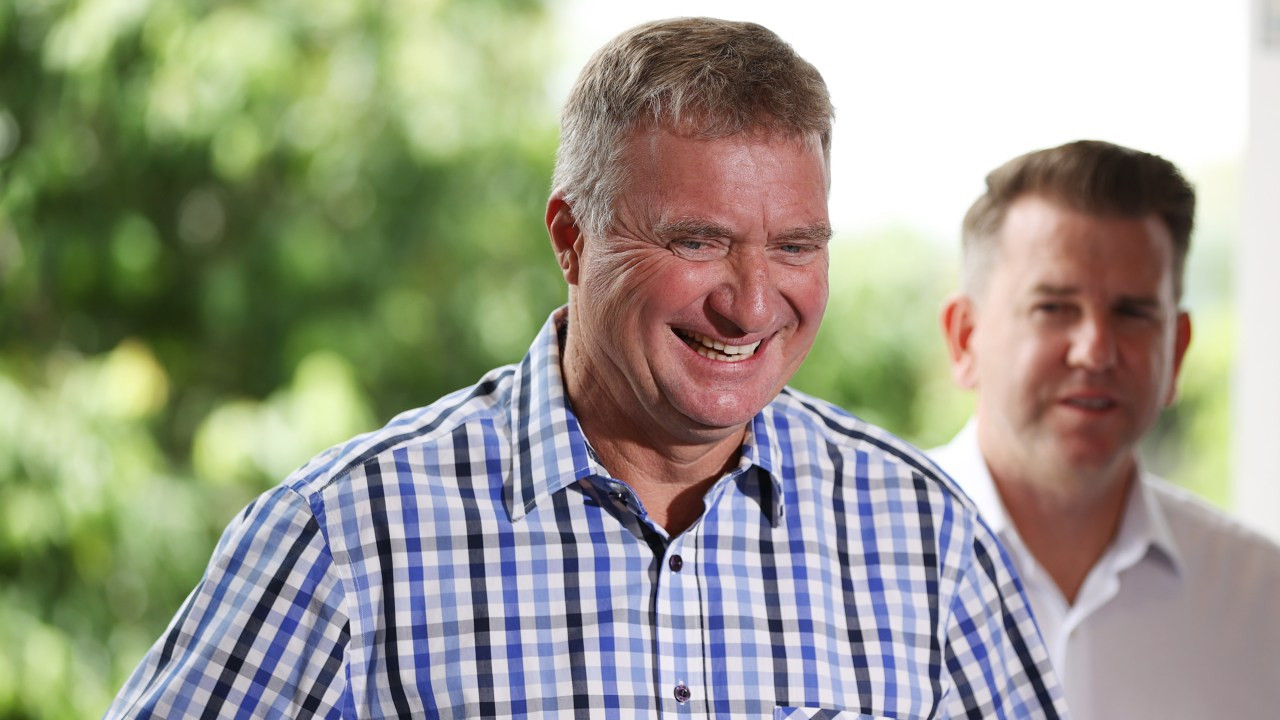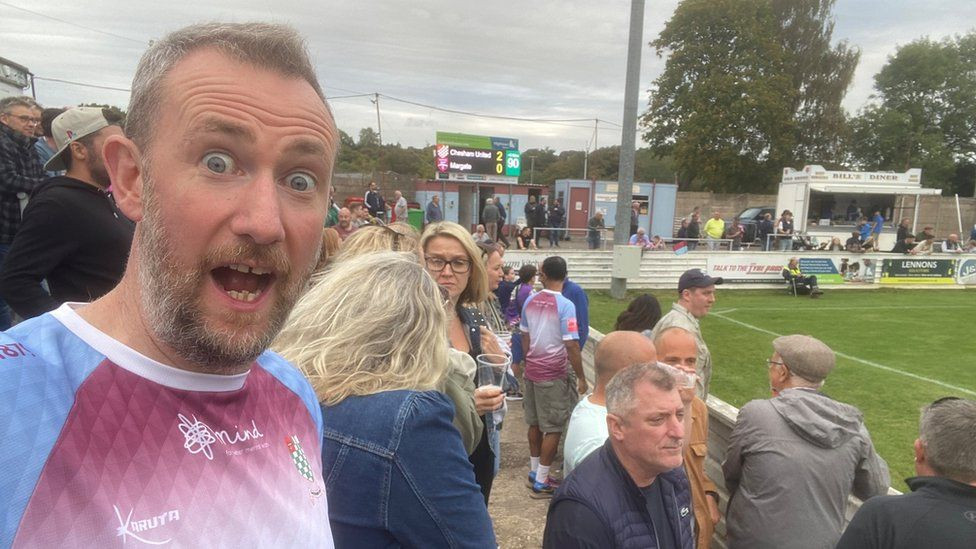Fears are growing for the welfare of three teenage friends who have all gone missing. Police are increasingly concerned about Shelley, 14, Roxanna, 13, and Jack, 15, who have not been seen for several days.
Officers first issued an appeal for Shelley, who was last seen in Eastleigh near Southampton, Hampshire, six days ago. However, they have now extended their search to include Jack, who has not been seen in the same town since Sunday, and Roxanna, who was last seen at her home in nearby Bursledon on Saturday morning.
Police believe that the trio may have travelled to London.
Shelley is described as being white, 5ft 3in to 5ft 5in, with long light brown hair that is usually worn in a bun. She was last seen wearing black leggings, a blue T-shirt and a white puffer gilet and carrying a black handbag.
Roxanna is described as white, 5ft 3in to 5ft 5in, average build with blue eyes and long brown hair. She was last seen wearing a grey hoodie, a black puffer jacket and black trainers.
Jack, who is also white, is described as being 5ft 9in, of slim build and with dark ginger hair that is long on top. He was last seen wearing a white T-shirt, light blue cargo trousers, white trainers, a black coat and carrying a black bag.
The Search for the Missing Teens
A spokesman from Hampshire Constabulary said: “We’ve been carrying out a number of enquiries since they went missing, but are now turning to the community for help.
“We’re growing increasingly concerned for their welfare and would urge anyone who has seen them since they went missing, or anyone who might know where they are now to contact us immediately.”
The police are urging anyone with information to come forward.
Finding Common Ground: How Classical Music Connects with Young Audiences
In 2019, at a concert by Boston’s Handel and Haydn Society, the final chord of Mozart’s Masonic Funeral Music swelled then ebbed into a reverent silence. On any other evening, the cognoscenti at such an event would freeze for several seconds before launching into applause. But on this occasion, that sacred silence was pierced by a high-pitched “Wow!” from the stalls where Ronan, a nine-year-old with special needs attending with his grandfather, could contain his enthusiasm no longer, delivering his rave review on the spot. The moment was captured by local radio, eventually making its way on to social media where I discovered it with tens of thousands of others. As I listened, I remarked to myself that, as a professional conductor, I’d be thrilled to inspire that kind of spontaneous fascination in a young audience member, especially since childhood exposure to the orchestra is what inspired my love of classical music and a fulfilling career in its service.
I was raised in the Trinidad and Tobago of the late 70s and early 80s where, not being particularly interested in calypso or carnival, I found myself entranced by orchestral movie soundtracks, annual productions from the country’s Opera Society, and television broadcasts of concerts Live from Studio 8H, an NBC venue that hosted the New York Philharmonic (NYP). When I was just Ronan’s age, I had videotaped one such performance featuring soprano Leontyne Price, violinist Itzhak Perlman and conductor Zubin Mehta, watching it ad nauseam until, one tragic day, the machine ate the tape. I realise now that every time I watched that concert, I too thought “Wow!” and imagined what it would be like to hear the NYP play in real life or even do what Mehta was doing.
Connecting with a Younger Generation
But what about today’s children? Some commentators would have us believe that attracting young people to orchestral music now is fundamentally more challenging than it was in my youth, associating the genre with a need for everything from prior knowledge to a high income, to say nothing of its demands on modern attention spans, atrophied by the internet and social media. The current context may be different, but in my experience the fundamentals of music reception are constant – and connection is the key.
Whenever I hear people refer to orchestral music as arcane or incompatible with young ears, it occurs to me that any young person who has enjoyed a Marvel or Star Wars movie has heard a lengthy orchestral performance (of a sort) and might well be amenable to hearing and seeing more, were it presented in a similarly imaginative and relatable context. So, in the summer of 2019, I was thrilled to join the already popular CBeebies Proms for Off to the Moon, an “edutainment spectacle” celebrating 50 years since the first astronauts walked on the moon, with giant video screens, a Saturn V rocket model, a new work by Hans Zimmer, beloved TV hosts as crew, and myself cast as the conducting Mission Commander! Cinematic appropriation? Perhaps, but popular cinema has borrowed some of its most evocative musical vocabulary from the concert world, so it’s only fair that the pedagogical concert world should occasionally poach cinema-style storytelling in return.
Making Classical Music Accessible
My own Charlotte Symphony Orchestra (CSO) in North Carolina uses similar methods to create youth-relevant programming. Building on strong relationships with partner schools, upcoming gen Z-targeted projects include concerts showcasing music from popular video games or melding the music of Beethoven and Beyoncé, the likes of which have stoked a recent increase in our youth attendance.
We also take our music outside its usual context: the CSO Roadshow performs directly to communities, upon request by their leadership and in collaboration with them to select the content. All of this at no cost to them, because making orchestral music more accessible is as much a financial consideration as a motivational one. I know this to be true because just nine years after the videotape disaster in Trinidad, I found myself in London among a throng of “Prommers”, having paid mere pocket change to see Mehta, the only conductor of colour I knew, lead the NYP at the Royal Albert Hall. It was my life’s ultimate “Wow!” moment, made possible by the right price.
Since my journey to the moon at the 2019 Proms, I’ve returned to the Royal Albert Hall for an Ocean Adventure in 2022 and again for this year’s Wildlife Jamboree – not least because paying forward the “power of wow” from the very platform that delivered it to me as a boy has been uniquely fulfilling. At my most recent CBeebies Prom, as I walked on stage, I heard a pre-applause gasp from the audience that perplexed me. Backstage after the show, the director shared with me that this was in fact the moment the kids had excitedly recognised their trusted musical friend and the only conductor they knew, thanks to watching previous Proms on iPlayer. I thought: if this signals the start of a lifelong musical journey for even a handful of them, then the circle is complete. Mission accomplished.
Kwamé Ryan is a symphonic and operatic conductor based in Germany. He is music director of the Charlotte Symphony Orchestra and guest conducts worldwide




